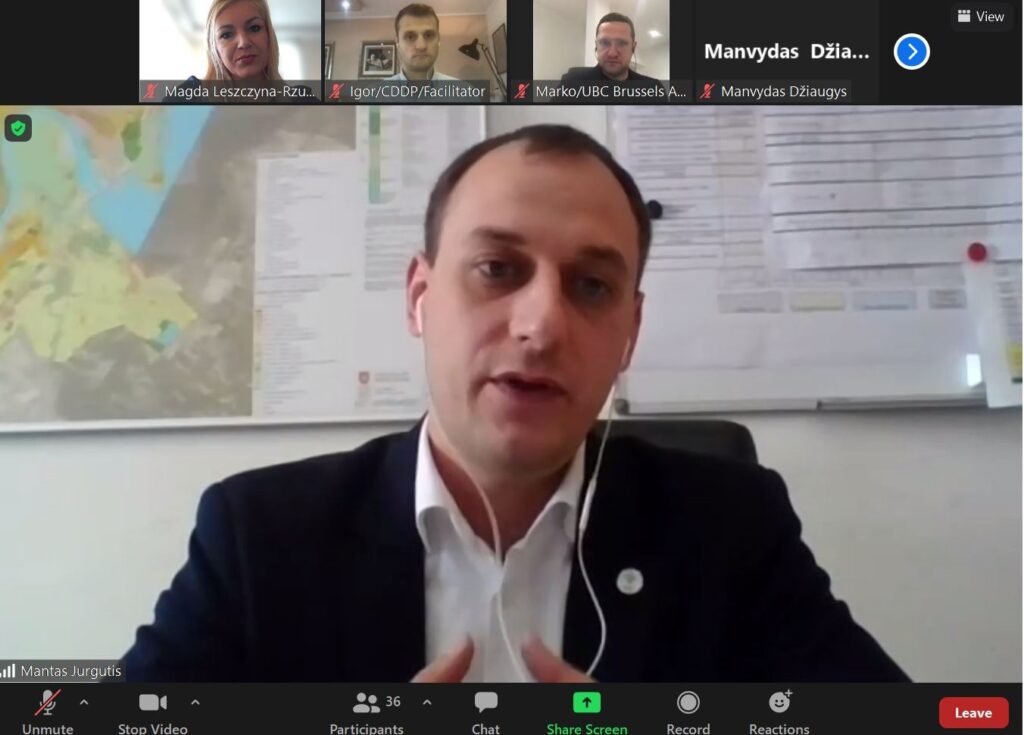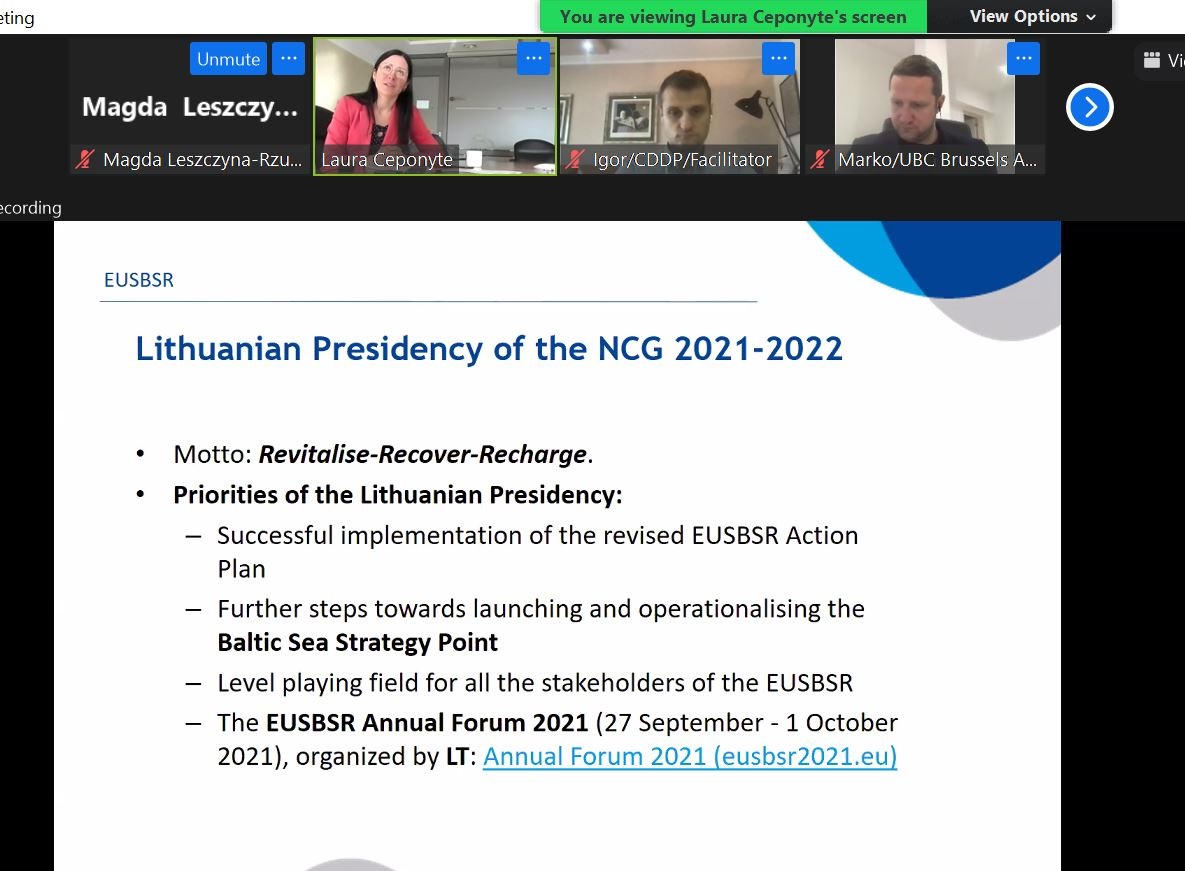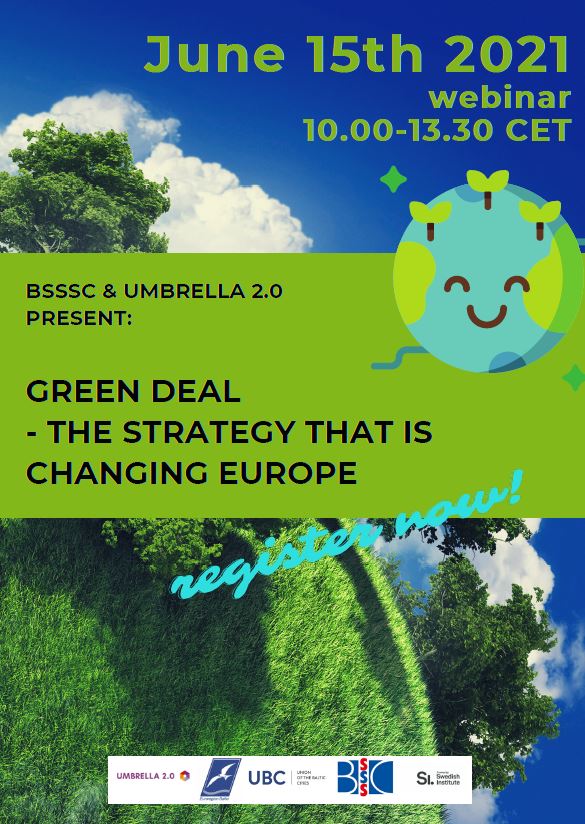The Training on European Strategy for the Baltic Sea Region (EUSBSR) within the ”UMBRELLA 2.0” project took place online on November 9th, gathering around 60 participants coming from UBC Member Cities, Civil Society, Business and Academia across the Baltic Sea Region.
The overall aim of the training was to make participants familiar with the structure and opportunities within the EUSBSR and prepare them to become active players in different EUSBSR flagships or policy areas.
During the interactive course of 6 hours, experts from UBC, Ministry of Foreign Affairs of Lithuania, Association of Polish Communes Euroregion Baltic and the Swedish Institute provided fresh updates about the strategy, macroregional cooperation and potential funding opportunities through programme schemes such as Interreg, European Regional Development Fund, Horizon Europe, Erasmus +, European Social Fund Plus.
”UMBRELLA 2.0-Boosting transnational cooperation capacities for multilevel actors in the Baltic Sea Region” goal is to increase awareness and knowledge of transnational cooperation in the Baltic Sea Region. Project partners are the Association of Polish Communes Euroregion Baltic (ERB), the Union of the Baltic Cities (UBC) and the Baltic Sea States Subregional Cooperation (BSSSC) – Associated partner.










